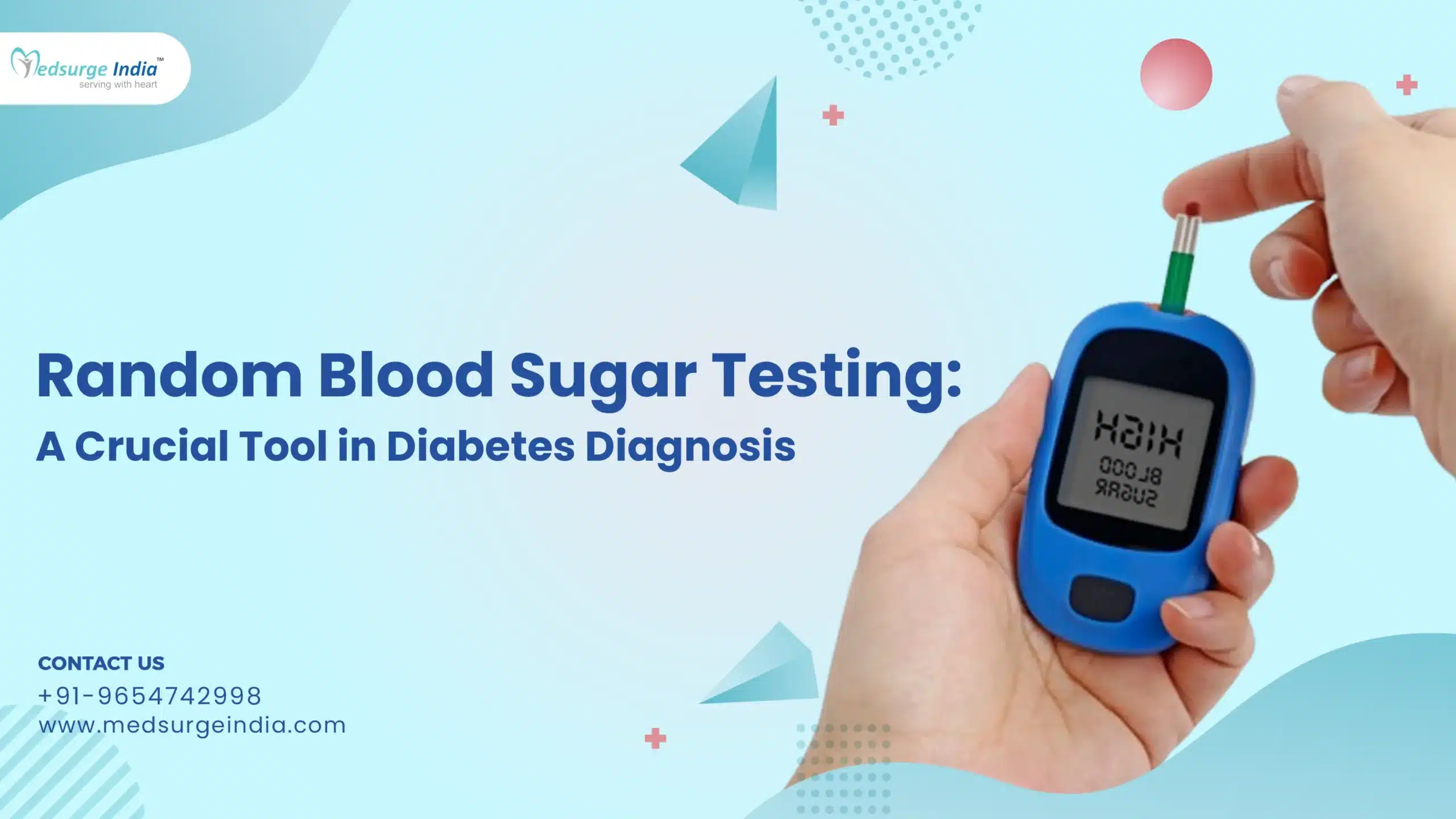
Testing blood sugar levels is essential for individuals with diabetes to maintain good health. By monitoring sugar levels regularly, many people can effectively manage their condition and reduce the risk of health complications.
Medical professionals conduct this test to assess the likelihood of a person having diabetes. Although further tests may be required to confirm a complete diagnosis, a random glucose test can assist doctors in determining the necessity for additional testing. This blog explores the definition of a random blood sugar test, the reasons why a doctor may suggest it, and the implications of the test results.
What is Diabetes?
Diabetes is a condition that impairs the pancreas’ ability to release insulin, hindering the conversion of sugars into glucose. Insulin plays a crucial role in facilitating the entry of glucose into the bloodstream for energy production. Unfortunately, individuals with diabetes experience a malfunction in this process.
One of the initial signs of diabetes includes frequent urination and increased thirst. These symptoms arise due to sugar accumulation in the bloodstream, which remains unabsorbed. Consequently, the kidneys filter out substantial amounts of sugar, potentially resulting in dehydration.
What is a Random Blood Sugar(RBS) Test?
The random blood sugar (RBS) test is conducted to measure the blood sugar level at any given time of the day. This test is utilized to verify the presence of diabetes mellitus, as well as to monitor its progression and effectiveness of treatment. If the blood sugar level is 200 mg/dl or above, it indicates the presence of diabetes mellitus.
Why RBC Test is Done?
There are numerous variations of glucose tests available, each serving the purpose of estimating blood sugar levels at a specific moment or over an extended period. These tests can provide average levels or assess how efficiently the body can regulate altered glucose levels.
The test may also be conducted if you experience:
- An escalation in the frequency of urination.
- A recent significant weight gain.
- Vision that is unclear or blurry.
- Confusion or alterations in your usual speech or behavior.
- Episodes of fainting.
- Seizures occurring for the first time.
- Unconsciousness or being in a coma.
How The Test Is Performed?
Unlike the Fasting Blood Glucose Test, the blood sugar RBS test is a straightforward procedure that does not necessitate fasting. The RBS test involves extracting blood from the veins using an injection. Besides a slight prick, the RBS test causes minimal discomfort.
There are several methods to conduct the test:
- Following a minimum 8-hour fasting period, during which you refrain from consuming any food.
- The test can be performed at any time during the day, without any specific restrictions.
- Two hours after consuming a specific quantity of glucose, known as the oral glucose tolerance test.
What is the Proper Way to Interpret the Results of a Random Blood Sugar Test (RBS)?
The subsequent reference table is designed to assist you in comprehending the outcomes of the test.
| Reference range | Interpretation |
| 70-110 | Normal glucose tolerance |
| 110-126 | Impaired glucose |
| >126 | Provisional diagnosis- Diabetes Mellitus |
In certain instances, relying solely on the RBS test may not be enough to definitively diagnose diabetes. Patients may be recommended to undergo supplementary testing methods, including:
- Fasting blood sugar
- HbA1C test
- Tolerance Exam
- Postprandial blood glucose test for two hours
Bottom Line
A random glucose test is conducted to measure the level of glucose or sugar present in an individual’s bloodstream. It is not necessary for the person to fast prior to undergoing this test.
The purpose of this test is to assist doctors in identifying potential cases of diabetes. If the results of a random glucose test indicate the need for further examination, additional testing may be recommended to confirm a complete diagnosis. Individuals experiencing symptoms associated with diabetes are advised to seek medical attention and consult their doctor for an evaluation.



 (1).png)